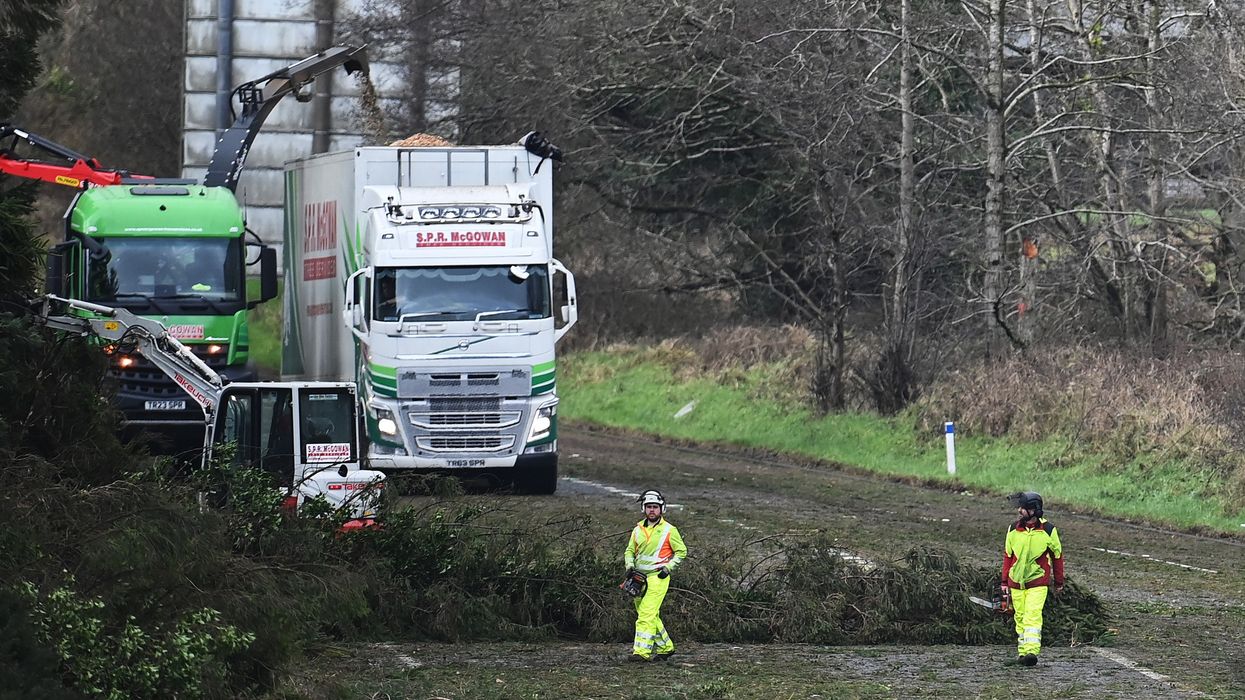STORM Eowyn caused widespread disruption on Friday as it swept through Ireland, Northern Ireland, and Scotland, killing one person and leaving hundreds of thousands without power.
The storm, which recorded Ireland's strongest-ever wind gusts, also led to travel cancellations, school closures, and extensive damage to infrastructure.
A man died in Ireland when a tree fell on his car, according to police. Gusts reached 183 kilometres per hour, breaking an 80-year-old record.
These winds brought down power lines, uprooted trees, blocked roads, and destroyed sports facilities, including an ice-skating rink near Dublin and a multi-million-pound indoor games centre in County Mayo.
By evening, the highest red weather warnings had been lifted in Ireland and Scotland, but officials urged caution.
Scotland’s deputy first minister Kate Forbes told BBC radio, "It is so important that people follow advice not to travel because if people stay at home, they don’t invite that risk to themselves."
Airports, including Dublin, Belfast, Aberdeen, Edinburgh, and Glasgow, cancelled numerous flights. Dublin Airport, which had over 230 flight cancellations, resumed operations with the first departure around 0930 GMT. Schools across the affected regions were closed, and ferry services and train operations, including ScotRail, were suspended.
Cathriona Heffernan, a resident of Galway in Ireland, described the winds as "crazy" during the storm’s early stages. She noted that five large trees had been uprooted, with one split in half, highlighting the storm’s strength.
The UK’s Met Office said satellite imagery showed a rare weather phenomenon, a sting jet, had formed over Ireland. A sting jet is a small area of highly intense winds that can reach over 160 kilometres per hour, similar to the 1987 "Great Storm" in England, which caused 18 deaths.
In Ireland, 715,000 homes and businesses lost power, while Northern Ireland had over 93,000 outages, according to electricity suppliers. In Scotland, 22,000 homes were left without electricity as fallen trees and debris damaged power lines.
The Met Eireann weather service confirmed that Ireland’s previous wind speed record of 182 kilometres per hour, set in 1945, had been broken. Meanwhile, Britain recorded its highest gust of the day at 149 kilometres per hour in Northumberland, though the UK’s record remains 228 kilometres per hour, set in 1989 in Scotland.
Emergency alerts were sent to around 4.5 million people in the UK ahead of the storm, marking the largest use of the alert system to date. The Environment Agency has also warned of possible flooding in southern and central England in the coming days.
Scientists have linked stronger storms to human-driven climate change, although no specific connection has been attributed to Storm Eowyn.
(With inputs from AFP)




